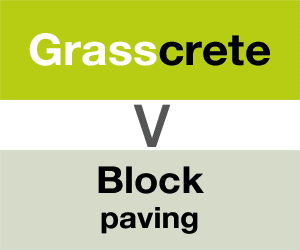A logjam in home improvement work has been exposed by the Bureau of Investigative Journalism – but the cause is not the building trade but the management of the Disabled Facilities Grant (DFG) system.
DFG is the grant scheme to help fund adaptations to disabled people’s homes, improve accessibility and aid independent living. Government rules mandate that adaptations are approved and completed within a maximum of 18 months in England and Wales once a council has received an application form, but this does not include the time taken to secure an official needs assessment that must accompany applications.
Data gathered from Freedom of Information requests sent to all UK local authorities and the Northern Ireland Housing Executive (NIHE) revealed that the time taken to complete adaptations varies randomly from council to council. Some complete assessment in days; others take months.
In Salford, for example, the average wait for a needs assessment is eight months. In Manchester it is seven months and Solihull six-and-a-half. Factor in the time taken to then process the application, get the builders in and do the work, the delays stack up.
As councils are only required to record the average waiting times, the data indicates that disabled people could easily be waiting two to three years for the changes that make their property a liveable home – such as accessible kitchen and showering facilities.
Fazilet Hadi, head of policy at Disability Rights UK, told the Bureau: “The current delays in the system are having a devastating impact on the lives of Disabled people and their families. Most people take bathing, cooking, and other everyday activities for granted, yet we are making disabled people wait months and years for basic changes to our homes, which would enable us to live independently and safely.”
Local authorities have discretionary powers to top up the DFG amount per applicant. The statutory maximum amount an applicant can receive as a DFG is £30,000 in England, £36,000 in Wales, and £25,000 in Northern Ireland. The UK government is considering raising the upper limit.

The investigation found that nearly 80% of local authorities in England top up the maximum DFG amount. Some offer another £30,000, other more. Manchester City Council can offer up to £70,000, citing the rise in the cost of building materials as one reason for the significant increase to its grant award. In some areas, the top-up is a grant; in many, it is a loan.
The Department for Levelling Up, Housing and Communities said: “It is vital disabled people are fully supported with adaptations and improvements, so they are comfortable and secure in their homes. Since 2010, we have provided councils with more than £4bn to deliver around half a million home adaptations and an expert body is on hand to help any council reduce backlogs, so older and disabled people can live independently and safely.
“We appreciate the challenges councils have faced to deliver these grants during the pandemic, but it is now crucial that adaptations are delivered at pace and the backlog on waiting lists reduced.”
The Welsh government said it had given an extra £1m to local authorities for adaptations in the 2021/22 financial year and plans to increase it again.
Several councils told reporters that they were struggling to recruit and train enough occupational therapists to provide quick assessments. They also offered the pandemic as a reason for delays in accessing homes for assessments and building work.
However, at the heart of the housing crisis for disabled people, campaigners say, is an historic lack of properties across the UK with suitable access. The 2021 National Disability Strategy recognised that fewer than half of the local plans in England for new homes include requirements for a proportion of new homes to meet higher accessibility standards.
Christina McGill, interim director of strategy and external affairs at Habinteg, a housing association that has prioritised accessible homes, said: “Just 9% of homes in England provide even the most basic accessibility features. That’s why Habinteg is calling for changes to building regulations to lift up the minimum requirement to the ‘accessible and adaptable’ standard and for all local plans to require a percentage of new homes to be designed to meet the daily living needs of wheelchair users.”
Got a story? Email news@theconstructionindex.co.uk


